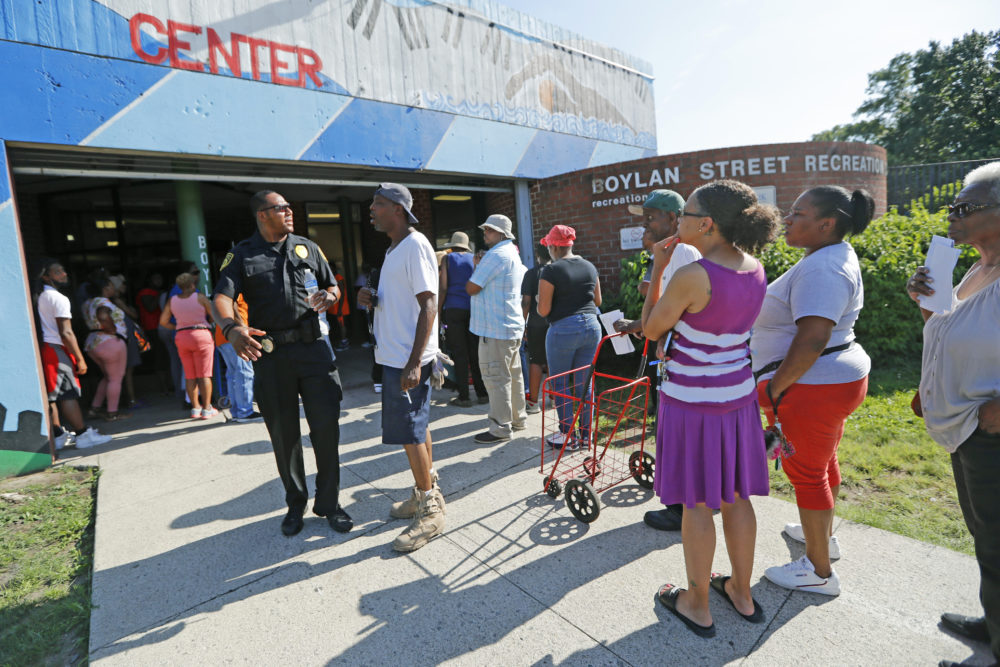Advertisement
N.J. Gov. Phil Murphy: 'No Evidence' That Newark Residents Can't Get Bottled Water

New Jersey Gov. Phil Murphy defended the city of Newark's efforts to combat lead contamination in tap water Wednesday, telling On Point's Meghna Chakrbarti there is "no evidence" that people can't get bottled water or have to wait in long lines.
"There's no evidence of that. So that's No. 1, and we now have state troopers posted at each of these distribution centers," Murphy said. "There's, Monday through Friday, free lead testing, which we're encouraging for every every child."
For years, residents in Newark have been wary of the water — concerns that reached a fever pitch this month when the Environmental Protection Agency sent the city a strongly-worded letter condemning the safety of its drinking water, and suggesting some 30,000 people rely on bottled water, instead. The EPA ordered Newark to begin issuing bottled water to residents served by the city’s largest water provider, the Pequannock Water Treatment Plant.
The EPA’s order came "after two of three households in the Pequannock service area that had received filters from the city still showed lead levels above 15 parts per billion, the allowable threshold," according to the Associated Press.
Newark has been distributing bottled water to more than 14,000 homes for the last 10 days.
The Natural Resources Defense Council, which sued the city last year over high lead levels, is seeking an injunction to force the city to also provide bottled water to some of about 30,000 households served by a plant in Wanaque, northwest of the city.
Murphy says contaminated water has been a priority since Day 1 — and that Newark and the state have done everything they could to mitigate the crisis.
"We didn't just decide to focus on lead over the past couple of weeks. This is something I talked about when I was running for governor two years ago and that we've been working on with the city from Day 1," Murphy said. "We're on top of this. It's too early to tell exactly how long it will take till we know, and where we ultimately end up, but there's no question we we're doing everything we can."
Also on Wednesday, Murphy said he isn’t declaring a state of emergency over lead levels in Newark’s water, per NJ.com.
The lead contamination in Newark has drawn comparisons to Flint, Michigan, and its lead crisis, but Murphy rejects that characterization. The lead is entering the water supply through the pipes in Newark — not through source water like is the case in Flint.
To reduce the lead leaching, Newark has introduced orthophosphate into the water, which acts as a coating. The city has also distributed around 40,000 filters and created a plan to replace lead service lines, though that's expected to take as long as 10 years and cost millions of dollars.
"I have enormous sympathy with folks who are particularly the most affected — the very young, the pregnant, nursing, and the very elderly," Murphy said. "The city is delivering, for folks who don't have the wherewithal to come get the water, it's being delivered to them. ... We're just going to keep our noses to the grindstone here and continue to work seamlessly with the city until we get this right."
Murphy is strongly advocating for the federal government to assist with the relief efforts.
"There's no amount of effort or energy that any city or any state can put into this that can match what the federal government can do," he said. "And so our delegation in both the House and the Senate has been very aggressive in trying to put forward water infrastructure legislation at the federal level because this is far beyond Newark."
With reporting from the Associated Press

